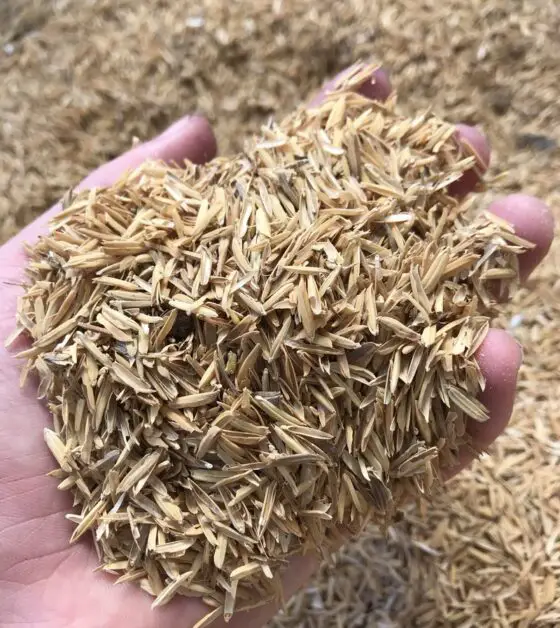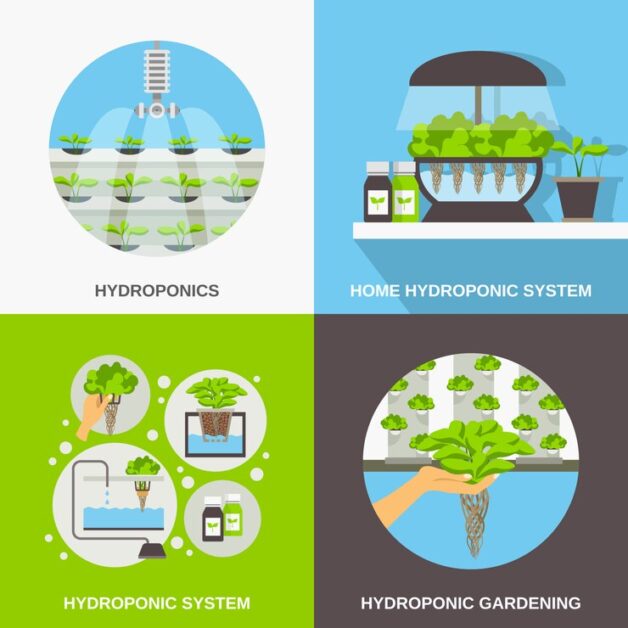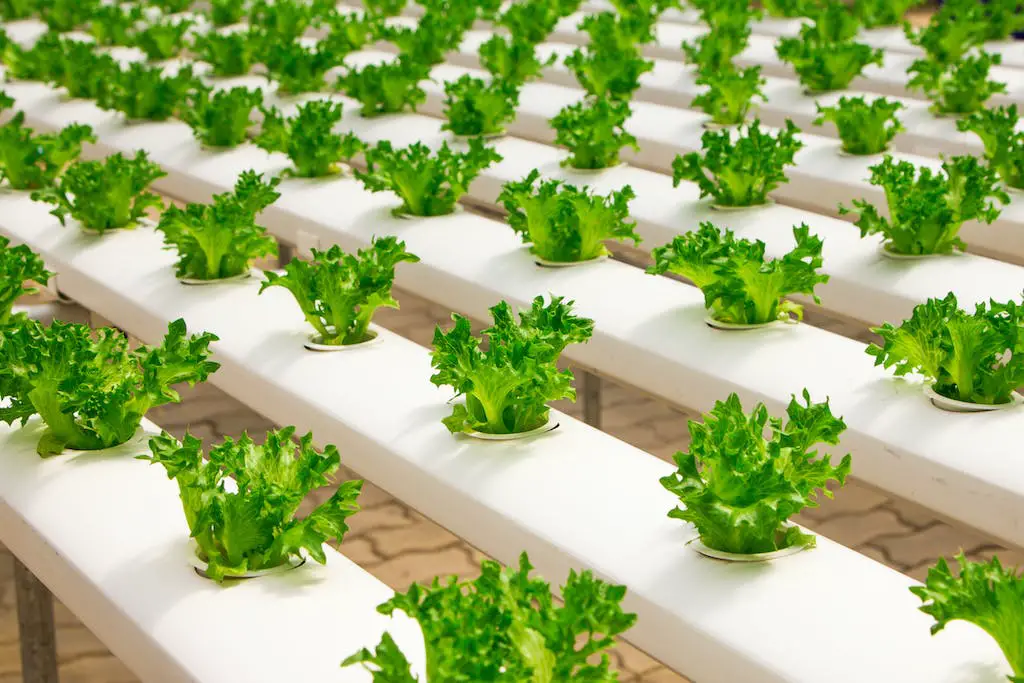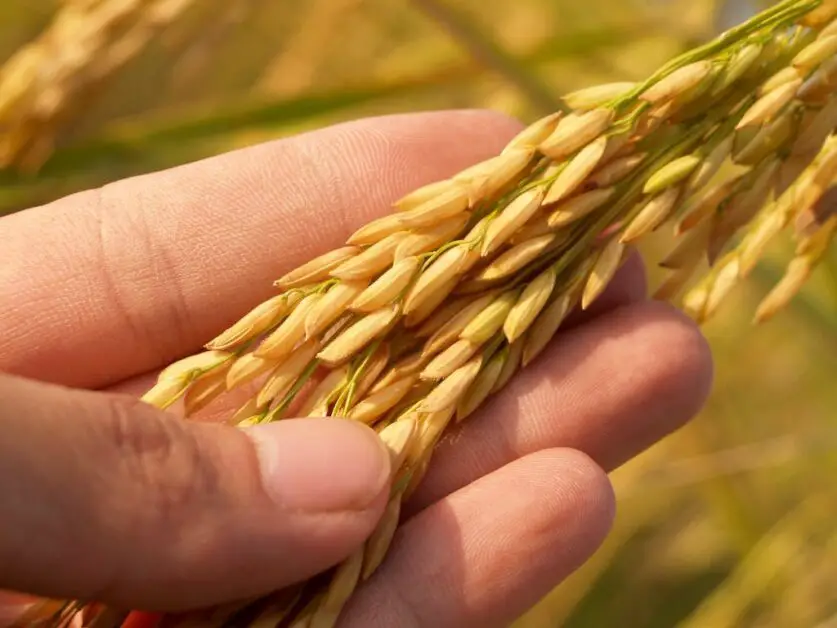Rice Hulls as Mulch: Benefits and Tips for Hydroponics
Table of Contents
Case Studies: Successful Implementation of Rice Hull Mulch in Hydroponic Systems
Hydroponic systems have revolutionized the way we grow plants, allowing for efficient, controlled environments that maximize yields. However, maintaining optimal conditions can be quite challenging, and one key factor that often requires careful attention is mulching. Mulching plays a crucial role in moisture retention, weed suppression, nutrient availability, and temperature regulation in traditional soil-based gardening. Therefore, it is no surprise that incorporating mulch in hydroponic systems has garnered significant interest among gardening enthusiasts and professionals alike.

One particular type of mulch that has shown promising results in hydroponic systems is rice hull mulch. Rice hulls possess several favorable characteristics, making them an ideal choice for horticultural applications. Not only are they readily available and inexpensive, but they also offer excellent water absorption and retention capabilities. Furthermore, rice hulls provide effective insulation, preventing temperature fluctuations that can be detrimental to the growth and development of hydroponically grown plants. These benefits, coupled with the fact that rice hulls are organic and sustainable, have prompted numerous case studies to explore their successful implementation in hydroponic systems.
• Rice hull mulch has been successfully implemented in hydroponic systems, as shown by various case studies.
• Rice hulls are readily available and inexpensive, making them a cost-effective option for growers.
• The water absorption and retention capabilities of rice hulls make them ideal for maintaining optimal moisture levels in hydroponic systems.
• Rice hulls provide effective insulation, preventing temperature fluctuations that can negatively impact plant growth.
• The organic and sustainable nature of rice hulls align with the principles of environmentally friendly gardening practices.
Certainly! Here’s a table summarizing the successful implementation of Rice Hull Mulch in Hydroponic Systems:
| Aspect | Recommendations |
|---|---|
| Mulch Thickness | Use a thick layer (approximately one or two inches) of rice hulls to insulate and protect plants from extreme temperatures. |
| Custom Blend | Mix rice hulls with other types of mulch to create a custom blend that meets your specific needs. |
| Application | Apply rice hulls around the base of plants, avoiding direct contact with stems and leaves. |
| Watering | Water regularly to prevent rice hulls from blowing away. |
| Maintenance | If you’re using a recirculating hydroponic system, clean your pump and filters regularly, as rice hulls can potentially clog them up. |
| pH Consideration | Keep an eye on the pH of your water, as rice hulls can raise the pH level. |
Benefits of Rice Hull Mulch:
- Inexpensive and Readily Available: Rice hulls are a cost-effective and sustainable resource.
- Moisture Retention and Temperature Regulation: They help retain moisture and regulate soil temperature.
- Improved Drainage: Rice hulls can enhance drainage in your garden.
- Weed Reduction: They can assist in reducing weed growth.
- pH Adjustment: Rice hulls can raise the pH level of your water.
Drawbacks of Rice Hull Mulch:
- Clogging Potential: In recirculating systems, rice hulls may clog pumps and filters.
- Decomposition Rate: They break down relatively quickly, so you’ll need to replace them more often compared to other types of mulch.
Please do watch video and know more information.
What is rice hull mulch?
Rice hull mulch is a type of organic material made from the outer covering of rice grains. It is used as a ground cover in hydroponic systems to provide insulation, reduce evaporation, and suppress weed growth.
How is rice hull mulch implemented in hydroponic systems?
Rice hull mulch is spread on the surface of the hydroponic growing beds or pots, creating a protective layer that helps retain moisture, regulate temperature, and prevent weed growth.
What are the benefits of using rice hull mulch in hydroponic systems?
Rice hull mulch provides several advantages, including improved moisture retention, reduced evaporation, enhanced temperature regulation, weed suppression, and increased organic matter in the growing medium.
How does rice hull mulch help with moisture retention in hydroponic systems?
The rice hull mulch acts as a barrier, reducing water evaporation from the growing medium. This helps maintain adequate moisture levels for the plants and reduces the frequency of irrigation.
Can rice hull mulch regulate temperatures in hydroponic systems?
Yes, rice hull mulch acts as an insulating layer on the surface of the growing beds or pots. It helps moderate temperature fluctuations, keeping the root zone cooler in hot weather and warmer during colder periods.
Does rice hull mulch prevent weed growth in hydroponic systems?
Yes, rice hull mulch forms a physical barrier that suppresses the growth of weeds by blocking light and preventing weed seeds from germinating.
Does rice hull mulch contribute to the organic matter content in hydroponic systems?
Yes, as rice hull mulch breaks down over time, it adds organic matter to the growing medium, improving its nutrient-holding capacity and overall soil health.
Are there any drawbacks or considerations when using rice hull mulch in hydroponic systems?
Some considerations include potential for pests or disease issues associated with the use of organic mulch, the need for periodic replenishment as the mulch decomposes, and the possibility of affecting nutrient availability or pH levels in the hydroponic system.
Can rice hull mulch be used in all types of hydroponic systems?
Rice hull mulch can be used in various hydroponic systems, including nutrient film technique (NFT), deep water culture (DWC), and media-based systems. However, it may require some adjustments and experimentation to optimize its use in specific setups.
Where can rice hull mulch be obtained for hydroponic systems?
Rice hull mulch can typically be obtained from agricultural suppliers, rice mills, or local farmers who produce rice. It is important to ensure that the mulch is organic and free from contaminants or chemical residues.

Nicole Burke is a dynamic writer at SouthElMonteHydroponics, fueled by her passion for horticulture and environmental sustainability. Armed with a degree in Environmental Science from a renowned institution, Nicole’s expertise lies in hydroponic gardening, organic farming, and biodiversity conservation. Her insatiable curiosity and love for nature drive her to explore innovative techniques in hydroponics, seeking to revolutionize the way we grow crops in urban environments. Nicole’s writing reflects her deep commitment to promoting eco-conscious practices and fostering a deeper connection between humans and the natural world. Through her engaging storytelling, she inspires others to embrace sustainable living and harness the power of hydroponics for a greener future.





